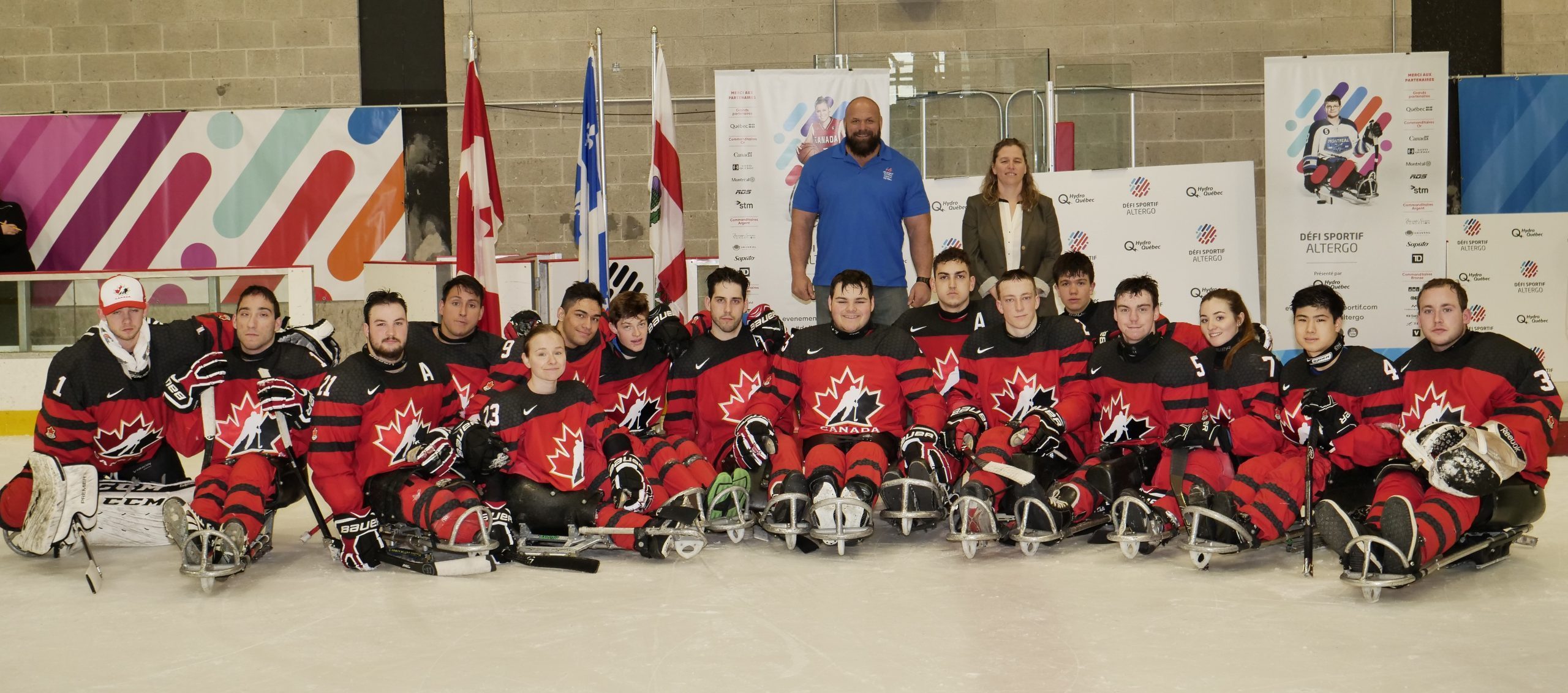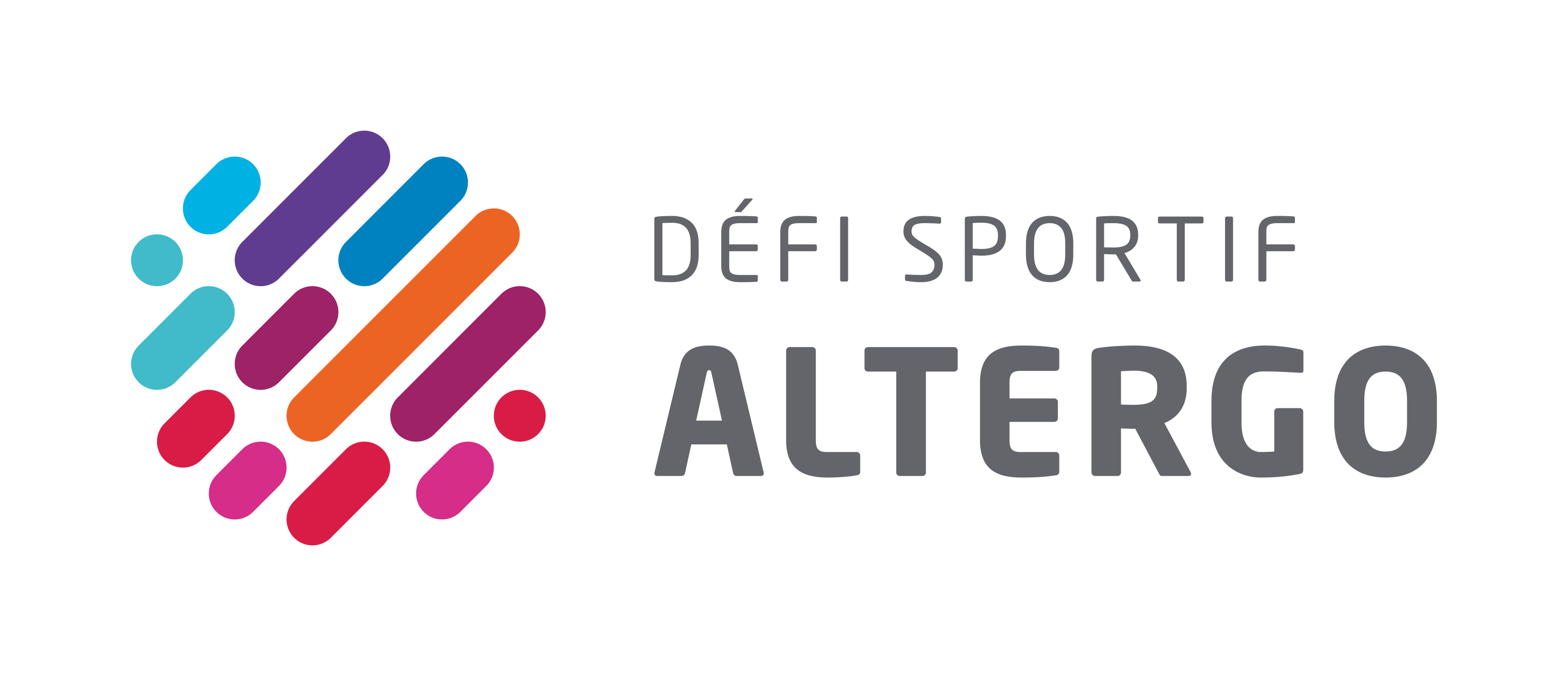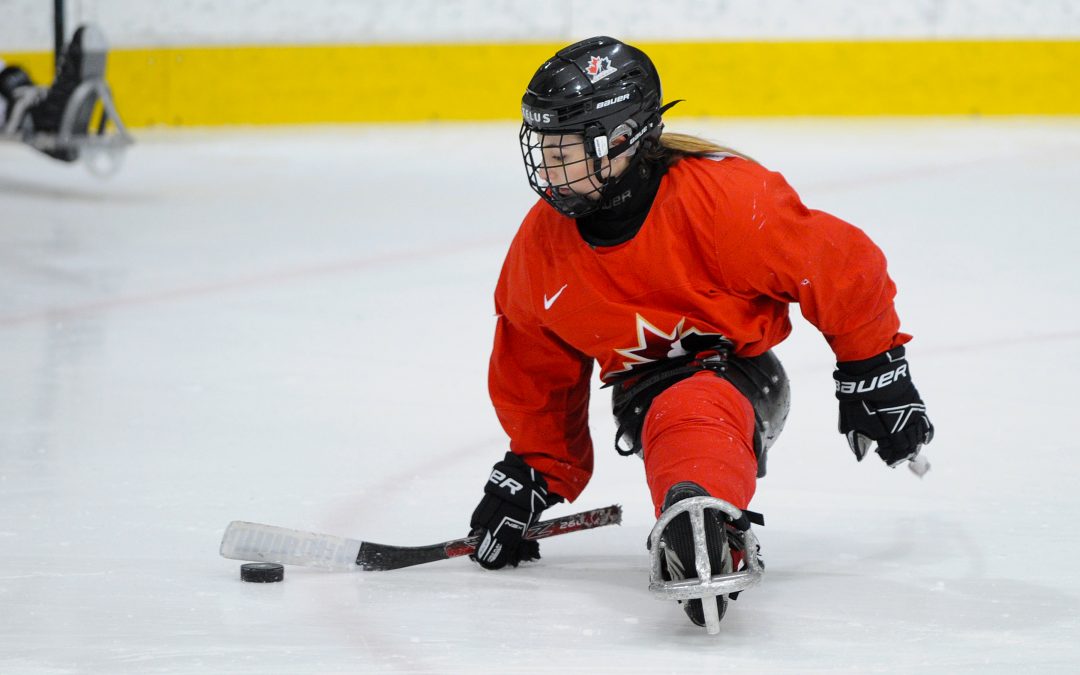At the age of 10, Raphaëlle Tousignant’s leg was amputated due to bone cancer. A year later, she was on a para hockey sledge for the first time. Now 19 years old, she is a member of the Quebec team and the women’s national para hockey team. She also competed in Défi Sportif AlterGo’s Canada-U.S. men’s series in 2019. We sat down with Raphaëlle in honor of International Women’s Day to talk about her dedication to para hockey, an adapted sport mostly played by men, and her athletic ambitions.
What led you to play para hockey?
Before my amputation, I played ringette, and that was really my sport. I loved the feeling of being on the ice, so after my amputation, I challenged my dad to find a sport that would fit, and if possible, on the ice. He found para hockey, and one Saturday morning, with the help of my physiotherapist, I went to try it. I immediately fell in love with the sport. Field hockey has always played a huge role in my family, especially on my father’s side, so this was bound to happen!
What does your physical training look like?
I train on the ice 1 to 4 times a week, and off-ice 3 to 5 times a week, depending on the time I have in the arena. Otherwise, I do mobility exercises for my shoulders to reduce the risk of injury. I also like to do yoga to stretch. Before a competition, I train with lighter loads to avoid soreness, I’m even more careful about what I eat than usual, and I make sure to get plenty of sleep.
How was your experience with the Men’s National Development Team at the 2019 AlterGo Sports Challenge Canada-USA series?

It was truly a rewarding experience. I think what made it even more amazing was that when I was invited, I didn’t really think I would make the team. So I went there with the perspective that I would bring back what I learned to the girls. Finally, when I got there, I realized that I might have a chance to make the team!
To accomplish one of my little dreams, which was to break through further in the men’s division at the national level, was incredible. I enjoyed my experience so much, I learned so much, even if only on a “professional” level, on how to act and prepare. On top of that, we had the equipment provided, there are people there to sharpen the blades, take care of the sledges… These are things that we didn’t have on the women’s side, so I was able to grow from that and to bring everything I had learned on the women’s side, in addition to living the experience of being on the team.
What place do you think women’s para sports have in society?
In my opinion, women’s parasports are not yet given enough prominence. I see that they are under-represented, under-developed, under everything I would say!
What I think is a shame is that there is a lot of unawareness. Even in para hockey, talking to some of the guys, they didn’t realize that we can’t make it to the Paralympics because there aren’t enough women’s teams in the world. We are also underestimated. I think there are still a lot of prejudices about women in sport. We are often reduced to the idea that ‘you are a girl, therefore you have less skills on ice than a man’.
I hope to one day have the same opportunities to compete with the women’s team. The goal should be to harm as few people as possible in the sport.
What role models inspire you to be active?
I like to be inspired by people I know or meet. Right now, I would say it’s Marie-Philip Poulin. With the recent completion of the Olympics, you hear more about women’s hockey, and I had the chance to meet her and play golf with her. She is someone who is very down to earth, yet she has accomplished many great things. She is committed to the development of the sport, and she is involved in women’s hockey. She’s a role model that I’m trying to emulate to develop women’s para hockey, so that one day I can go to the Paralympics for my sport.
How far do you want to go in sport?
I have always dreamed of the Olympics, even before my amputation. When I started playing parahockey, it was the year of the Paralympics in Sochi. I thought, I want to go too, one day. Of course, at the beginning I didn’t know that there wasn’t a para hockey competition for women, so I started playing with this goal in mind. Since I cherished this dream for many years, I am not ready to give it up. I would love to get there in para hockey, the sport that makes me want to move.
Raphaëlle is a role model for all girls with functional limitations who want to participate in sports. We wish her lots of success in the pursuit of her goals!


